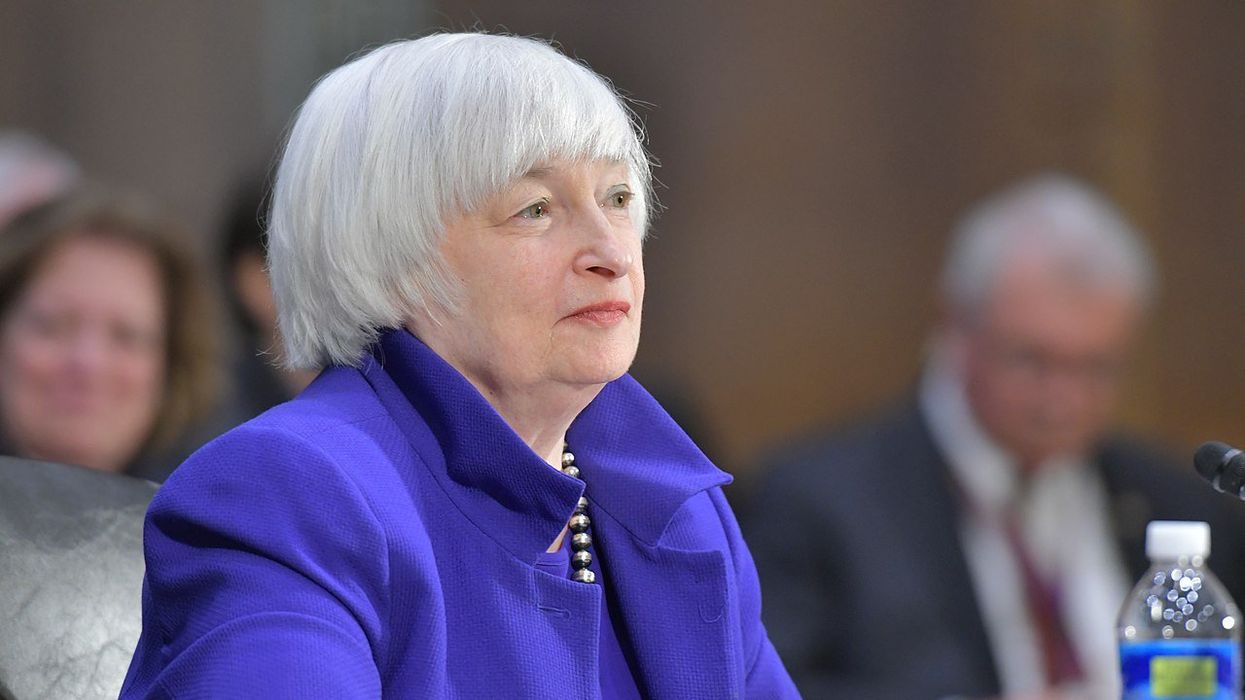Janet Yellen brings dire warning on looming debt default to Wall Street execs


U.S. Treasury Secretary Janet Yellen has been sounding the alarm about the "economic and financial catastrophe" the United States will suffer if it defaults on its debt obligations — a default that, according to Yellen, could occur as soon as June 1 if President Joe Biden, House Speaker Kevin McCarthy (R-California) and Senate Majority Leader Chuck Schumer (D-New York) don't reach some type of budget agreement. Yellen is warning that a debt default could trigger not only a recession in the U.S., but a global recession.
Now, according to Politico, Yellen is getting ready to take her concerns to Wall Street.
Sam Sutton and Ben White of Politico report that Yellen, in mid-May, plans to meet with Bank Policy Institute board members. The board is led by JPMorgan Chase CEO Jamie Dimon and also includes Citigroup CEO Jane Fraser.
READ MORE: Janet Yellen gives hard deadline for GOP to end economic hostage situation
Dimon has been sounding the alarm as well. During an interview broadcast by Bloomberg, Dimon warned that "the closer you get" to a default, the more likely financial markets will "panic."
Sutton and White explain, "The meeting comes at a pivotal moment in negotiations, with both sides deeply divided and no clear path forward…. Despite their sway over markets, Wall Street has largely held off on direct engagement with policymakers in the debt limit fracas. But executives like Dimon and Fraser have warned repeatedly that a default would be disastrous."
The Politico reporters add, "The research arms of several institutions, including Goldman Sachs, have also been sounding alarms about how little runway the U.S. has left before the X-date."
According to real estate specialist Zillow, a debt default could cause housing costs to increase by 22 percent.
READ MORE: America's 'greatest deliberative body isn’t deliberating' in urgent debt ceiling talks: report
Jeff Tucker, a senior economist for Zillow, told CNN, "While we don’t expect a debt default to occur, if it did, it would have unprecedented effects on the financial system. This would reduce lending and credit availability throughout the financial system. What that means for the housing market is that the cost of borrowing would rise dramatically and sales would be dropping…. Home buyers and sellers finally have been adjusting to mortgage rates over 6 percent this spring, but a debt default could potentially raise borrowing costs even higher and send the market into a deep freeze."
READ MORE: 'Defaulting' on America's debt isn’t 'conservatism' — it’s recklessly 'irresponsible': conservative
Find Politico's full report at this link.